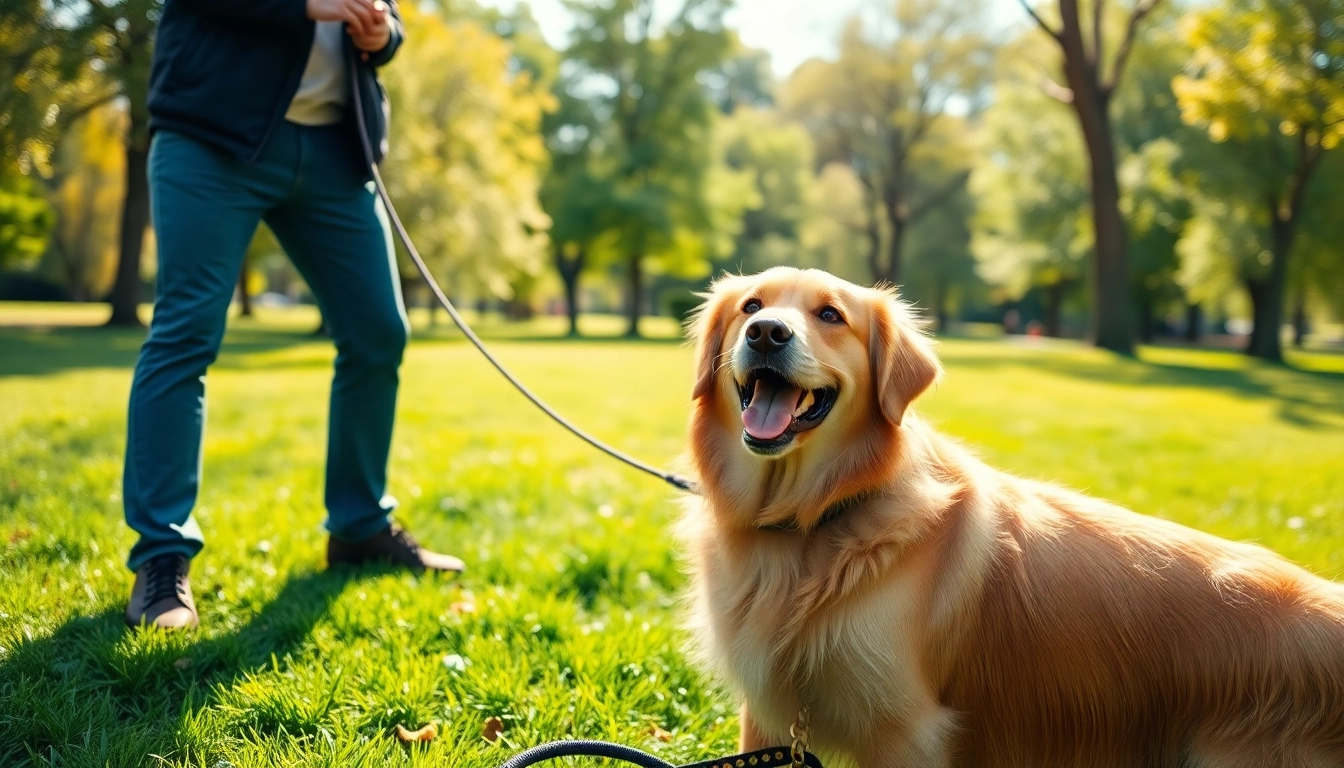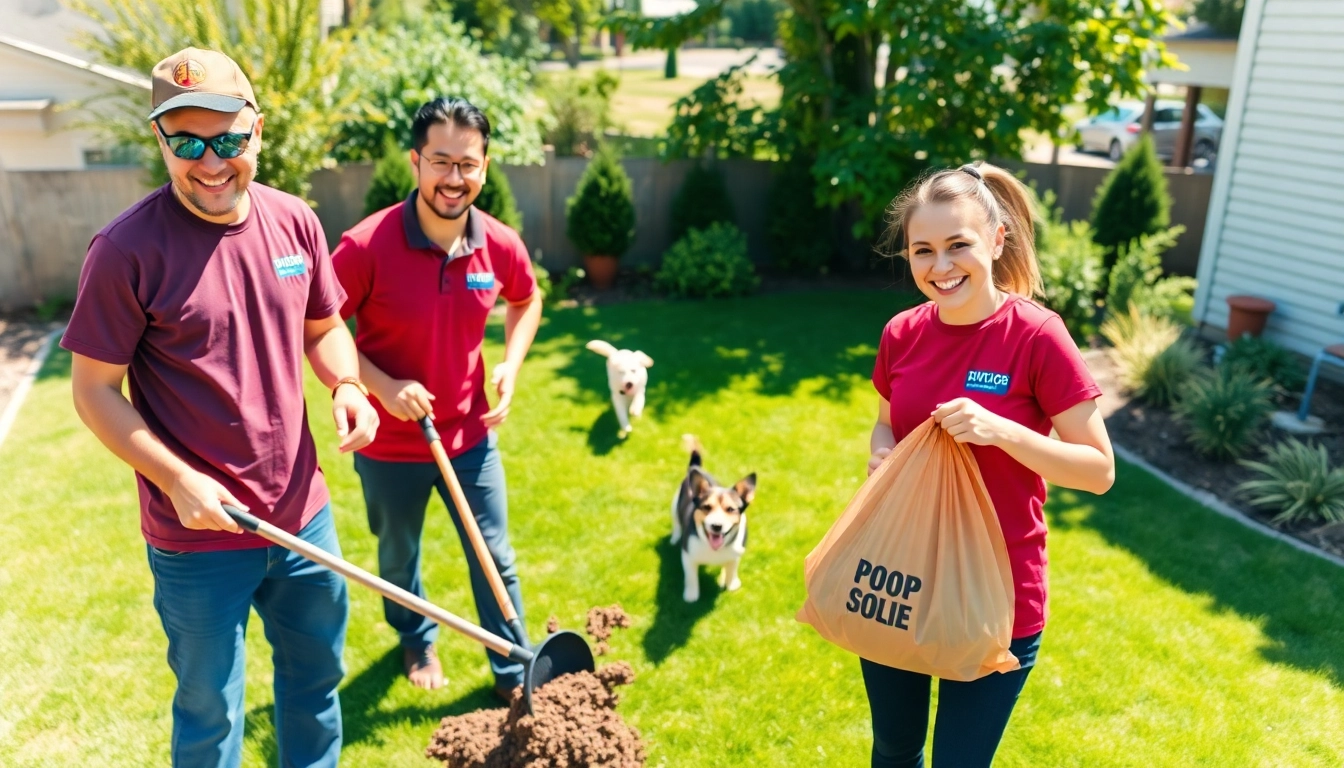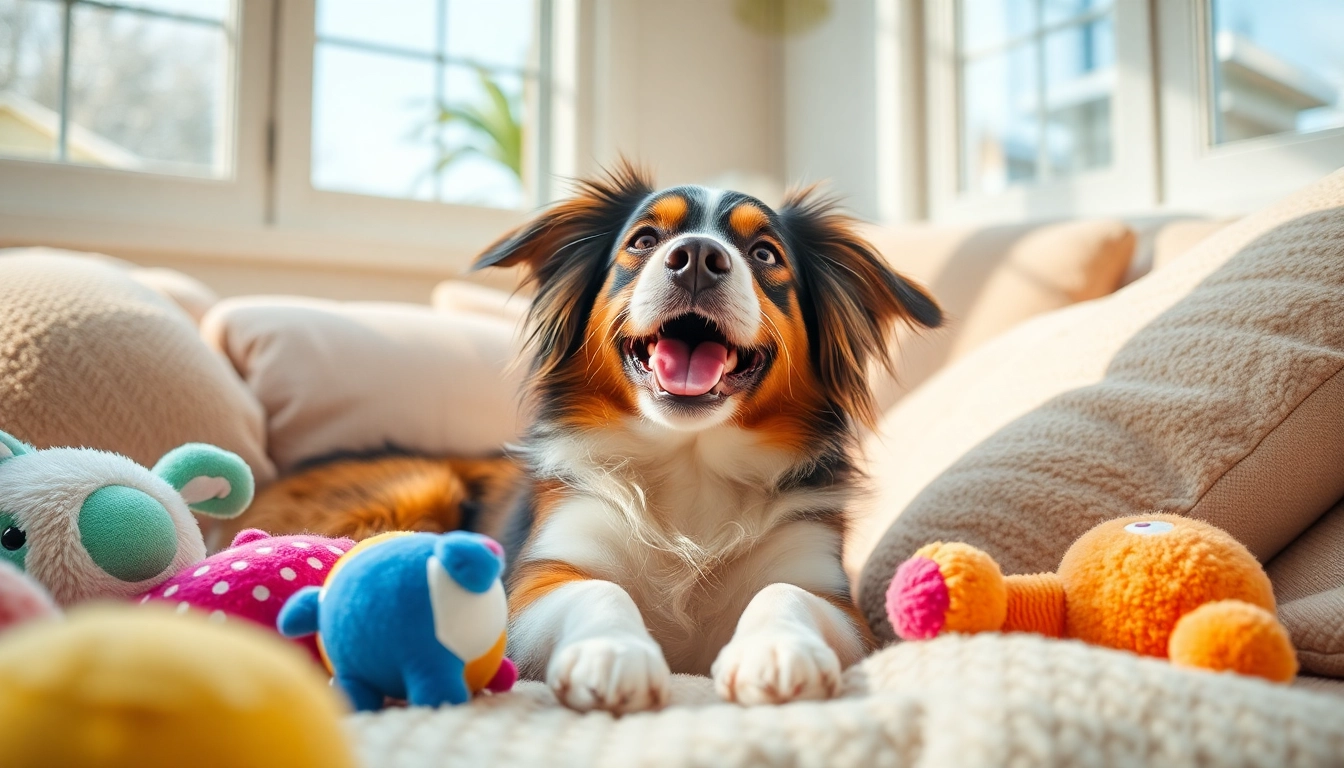The Importance of Dog Training in Irvine
Dog training is an essential aspect of pet ownership, particularly in a vibrant community like Irvine, California. With its parks, pet-friendly spaces, and a strong focus on family-oriented activities, Irvine provides an excellent environment for dogs and their owners. The local culture values responsible pet ownership, which is why understanding the nuances of Dog Training Irvine becomes critical. Training not only enhances the bond between pet and owner but also ensures the safety and well-being of both.
Understanding Behavior and Training Needs
Recognizing that each dog has distinct behavioral traits is critical when embarking on a training journey. Different breeds possess various temperaments, energy levels, and learning capabilities, which may impact their training needs. For instance, working breeds like the Border Collie or German Shepherd may require more rigorous mental and physical stimulation, while leisure breeds like the Bulldog may thrive on a slightly different training regimen. Early socialization, positive reinforcement, and the establishment of consistent boundaries are paramount for all dogs, creating an environment conducive to learning and obedience.
Benefits of Positive Reinforcement
Positive reinforcement has become the cornerstone of modern dog training methodologies. This technique entails rewarding desired behaviors with treats, praise, or playtime, encouraging dogs to repeat those behaviors. Research indicates that positive reinforcement not only strengthens bonds between dogs and handlers but also enhances the retention of learned behaviors. In Irvine’s community-oriented settings, employing positive training techniques can foster a more relaxed learning atmosphere, making classes enjoyable for both dogs and owners. For instance, the local training facilities often use these methods to ensure that every dog feels safe and confident during training sessions.
Common Training Challenges in Irvine
Despite the benefits of training, many dog owners face common challenges. One such hurdle is the prevalence of distractions in a city like Irvine, characterized by a bustling lifestyle and numerous outdoor activities. Dogs may become overly stimulated by factors such as other pets, children playing, or outdoor sounds. Moreover, the diversity of dog breeds and owner demographics can result in varying priorities concerning training, leading to potential discrepancies in obedience levels among dogs. Understanding how to minimize distractions during training and prioritizing individual goals can significantly enhance training outcomes.
Popular Dog Training Methods
Positive Reinforcement Techniques
Positive reinforcement techniques include methods such as clicker training, where owners use a clicking sound to mark desired behaviors followed by a reward. This approach helps dogs connect the click sound with positive outcomes. Another effective method is using food rewards to encourage behavior changes, especially in younger or less trained dogs. Implementing consistent cues and commands combined with rewards ensures that dogs understand what is expected of them, ultimately leading to improved obedience and a happier owner-pet relationship.
Clicker Training Explained
Clicker training is an advanced form of positive reinforcement that utilizes a small handheld device that makes a distinct clicking sound. This method allows for precise timing when rewarding a dog for a specific action. For instance, if a dog sits on command, the click is made immediately followed by a treat, reinforcing the behavior. Trainers in Irvine often incorporate clicker training in their sessions, as it is effective for various dog breeds, especially those with short attention spans. Additionally, it enhances communication between the dog and owner by fostering an environment of clear expectations and positive interaction.
Behavior Modification Strategies
Behavior modification is essential for addressing undesirable habits in dogs, such as excessive barking, jumping, or aggression. Techniques such as desensitization and counter-conditioning are widely used in Irvine’s training programs. For example, exposing a dog gradually to the source of its anxiety in small increments can help them adjust and become more comfortable over time. Working with skilled trainers who specialize in behavior modification can lead to successful outcomes for both dogs and their owners, cultivating a more harmonious living situation.
Choosing a Dog Trainer in Irvine
What to Look for in a Trainer
Choosing the right dog trainer is crucial to ensuring effective training. Owners should look for trainers who are experienced, certified, and have demonstrated success with a range of breeds and behavioral issues. It’s advisable to interview trainers in person, ask about their training philosophy, and observe a session if possible. Additionally, checking their certifications from recognized organizations like the Association of Professional Dog Trainers (APDT) can give insights into their qualifications and methodology.
Comparing Local Training Options
Irvine offers a variety of training options, from group classes to one-on-one sessions, which cater to different needs and preferences. Community centers often provide classes that focus on basic obedience, while established training academies may offer specialized programs such as agility training and behavior modification. Comparing these options can help owners find a suitable fit for their dog’s training needs, ensuring optimal results and a positive experience for both the dog and the owner.
Reviews and Testimonials: Making the Right Choice
Investigating reviews and testimonials from other dog owners can provide valuable insight into the effectiveness of local trainers. Online platforms like Yelp or community forums often feature assessments that can guide potential clients in their decision-making process. Positive feedback should reflect not only the trainer’s techniques and results but also their ability to communicate and connect with both dogs and their owners, a vital component of successful training.
Puppy Training Essentials
Socialization and Early Training
Puppy training starts with socialization, an equally important aspect of a dog’s development. It is critical to introduce puppies to various environments, people, and other dogs to help them develop confidence and good manners. Training classes specifically designed for puppies often include structured play sessions that facilitate socialization in a controlled setting. Early training establishes the foundation for a well-adjusted adult dog, reducing the likelihood of behavioral issues in the future.
Basic Commands Every Puppy Should Know
There are several fundamental commands every puppy should learn, as they build a solid foundation for ongoing training. Commands such as “sit,” “stay,” “lie down,” and “come” are essential for maintaining control in various situations. Consistency and patience in teaching these commands play a pivotal role in reinforcing them. Trainers in Irvine often emphasize these commands during initial classes, ensuring puppies grasp their importance for practical obedience.
Enrichment Activities for Puppies
Puppy enrichment is vital for healthy mental and physical development. Activities like puzzle toys, scent work, and interactive play can help stimulate a puppy’s mind while providing an outlet for their energy. Local training facilities may offer specialized classes that incorporate enrichment activities, blending fun and learning. Engaging puppies in different activities fosters curiosity and exploration, leading to well-rounded, happy dogs.
Advanced Dog Training Techniques
Agility and Obedience Training
For dogs that have mastered basic commands, advanced training techniques such as agility and obedience training can further enhance their skills. Agility training involves navigating obstacle courses and is excellent for building physical fitness and confidence. Trainers in Irvine often offer these specialized classes, making them accessible for dogs of all ages and breeds. Not only does agility training improve obedience and listening skills, but it also serves as a fun activity that strengthens the bond between dogs and their owners.
Addressing Aggression and Anxiety in Dogs
For dogs exhibiting signs of aggression or anxiety, tailored training is essential. Behavioral issues can stem from a variety of triggers, including past trauma or fear. Expert trainers specialize in using desensitization and counter-conditioning techniques to mitigate these behaviors safely. Engaging with professional trainers equipped to handle these challenges is vital for ensuring the dog’s safety and the wellbeing of those around them. Training for anxiety might also involve relaxation techniques and structured routines to instill a sense of stability in the dog.
Long-term Training Strategies and Lifelong Learning
Training should be viewed as an ongoing process rather than a one-time event. Long-term strategies involve continuous learning and engagement with the dog throughout its life. Regular classes, additional training workshops, and engaging in varied activities can all contribute to a dog’s development and prevent issues that may arise from boredom or lack of engagement. In Irvine, numerous resources such as training academies and community classes provide opportunities for lifelong learning, ensuring that dogs remain well-behaved and mentally stimulated.



